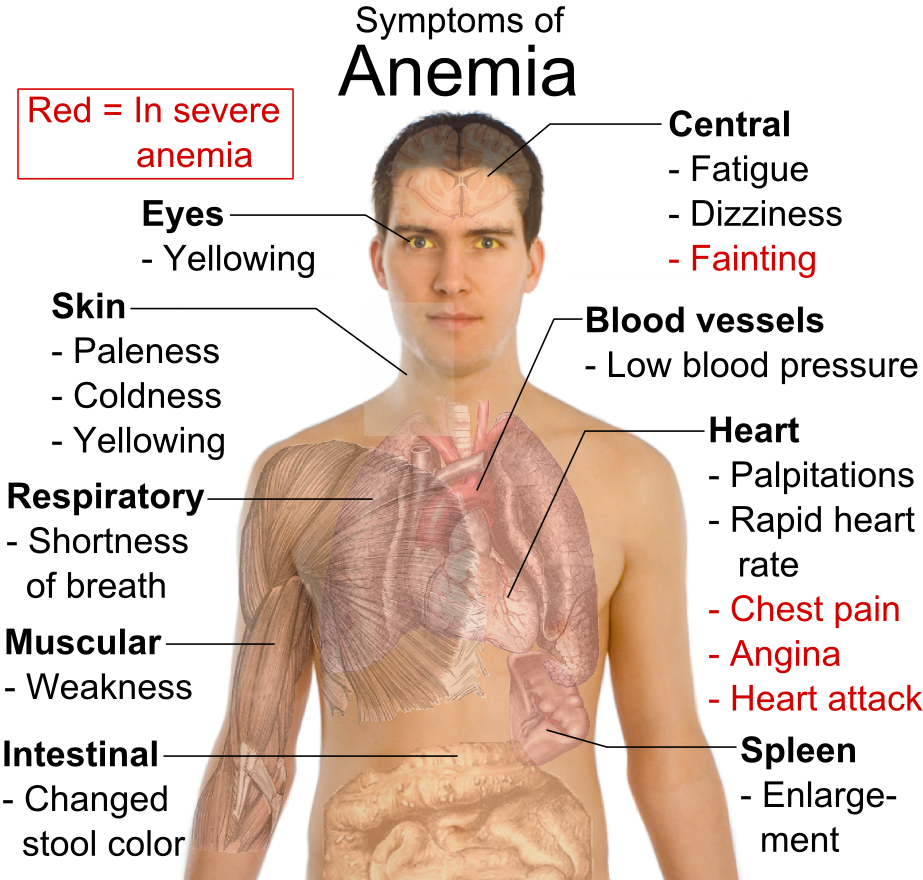Rusty Brains

I've dedicated a lot of space in the past to discussing vitamin C, vitamin D, and protein-energy, and here's another vital nutrient: iron.
I've raised the topic of nutritional deficiencies more than once in this column. While I'm the first to admit that there's a risk of becoming repetitive, the fact is that any time we talk about illness in a medieval setting, nutrition is one of the biggest, broadest, and most important topics we can possibly address, second only -- and that's by no means certain -- to basic hygiene and water sanitation. Nutritional problems probably accounted for more chronic health problems than any other factor in the life of the medieval peasant, taking into account the fact that one way or another infections and bodily trauma often didn't last long enough to become chronic and longstanding. If anything, this is probably even more true in a magical game setting. In most fantasy settings, there's abundant magic which can cure infections and injuries; this magic may be too expensive to be readily available to a farmer or beggar, but the magic is still there. In contrast, take a moment to flip through the system reference document of your choice, and see how many spells you find that can address nutritional problems and the problems that they cause in terms of bodily growth and development. There are a handful of spells out there which can produce magically nutritious food, but druids tend not to hang around city slums handing out Goodberries to the poor and there are only so many sixth-level clerics willing to cast Heroes’ Feast for the destitute every day out of charity. This leaves spells like Restoration and, depending on the rules you're using, Regenerate, which a storyteller may rule can cure damage caused by growing up without proper nutrition, and such high level magic is certainly unavailable to those who need it most. All of this goes a long way to explaining why I've dedicated a lot of space in the past to discussing vitamin C, vitamin D, and protein-energy, and furthermore, gives me permission to add another vital nutrient to this list: iron.
Throughout much of human history, iron was probably among the nutrients which peasants and farmers were most likely to be deficient in. Vitamin D deficiency became a problem later in human development, as early peoples migrated further from the equator, and lack of vitamin C didn't become recognized as a major killer until carracks and galleons made it possible for poor fools to spend months at sea far away from fresh fruit. In contrast, iron deficiency was likely among the earliest deficiencies humans encountered. It's only in recent centuries that iron-rich meat has become a major part of the average human's diet, and for that matter, it's still not a major part of the diet of many, if not most, of the world's population. Iron is plentiful in many vegetables, notably the leafy greens, but much of that iron is very poorly bioavailable, meaning that our guts have a miserable time extracting and absorbing it. If you study the diets of most cultural groups across the world, you'll find that they've almost all adapted to favour iron-rich foods as a special and valued food... but not always a readily available one. Anthropologists and historians have demonstrated that iron deficiency was a major source of morbidity and mortality in ancient and medieval England, Serbia, Slovakia, Poland, and the Americas, but it must be noted that I actually had some real difficulty finding similar data about China, Japan, and other Asian countries. Still, iron deficiency is likely to be a serious problem in almost any campaign setting.
I won't go into detail as to the symptoms of iron deficiency in general, because they're pretty well known to the general public: fatigue and weakness, pallor, vulnerability to the cold, chest pain, and poor immune response. What's less well-known are the cognitive effects of iron deficiency, which I found examined quite nicely in this study quite recently. The authors went into a high school in rural India -- a region which some might argue has some parallels with a number of the popular campaign settings -- and administered standardized and culturally-appropriate cognitive testing to girls with and without iron deficiency, in addition to looking at their grades. On all tests -- including concentration and verbal memory, tasks which are probably more relevant to the average adventurer than being able to regurgitate historical facts or molecular weights -- iron-deficient participants performed worse than "healthy" controls. The differences weren't all huge, and therefore we can rightly question the clinical significance of this study in spite of its statistical significance, but it strongly supports the very logical suggestion that iron deficiency impairs a person's ability to perform cognitive tasks, and in particular, tasks which are as important to a fighter as they are to a wizard.
More than four years ago, Dr. Eris Lis, M.D., began writing a series of brilliant and informative posts on RPGs through the eyes of a medical professional, and this is the one that appeared here on January 5, 2014. Lis is a physician, gamer, and author of the Skirmisher Publishing LLC OGL sourcebook Insults & Injuries, which is also available for the Pathfinder RPG system.






